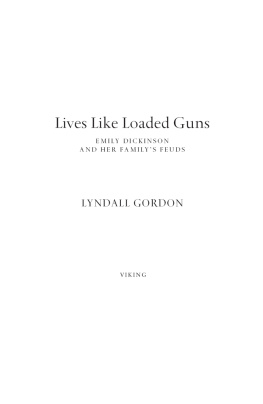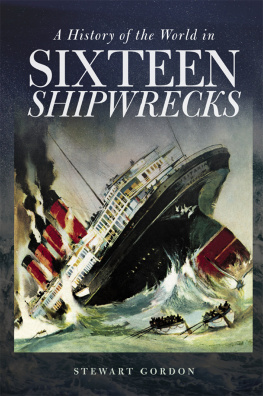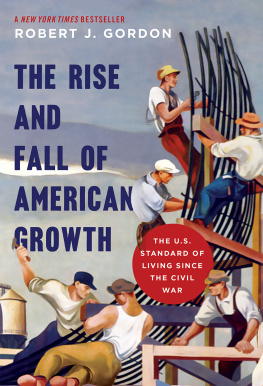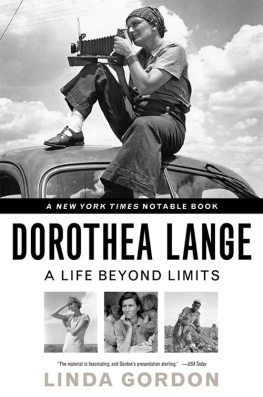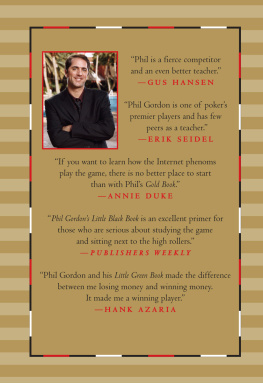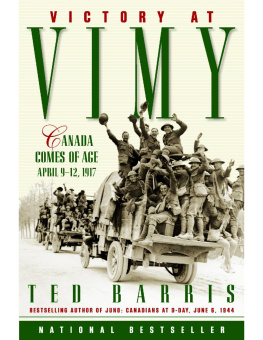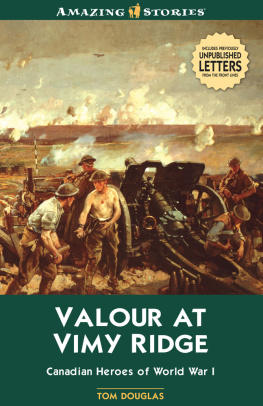Catching the Torch
Contemporary Canadian Literary Responses to World War 1
CATCHING THE
TORCH
Neta Gordon
Wilfrid Laurier University Press acknowledges the support of the Canada Council for the Arts for our publishing program. We acknowledge the financial support of the Government of Canada through the Canada Book Fund for our publishing activities.

Library and Archives Canada Cataloguing in Publication
Gordon, Neta, 1971, author
Catching the torch : contemporary Canadian literary responses to World War I / Neta Gordon.
Includes bibliographical references and index.
Issued in print and electronic formats.
ISBN 978-1-55458-980-7 (bound).ISBN 978-1-55458-985-2 (pdf).ISBN 978-1-55458-986-9 (epub)
1. Canadian literature (English)20th centuryHistory and criticism. 2. Canadian literature (English) 21st centuryHistory and criticism. 3. World War, 19141918Literature and the war. I. Title.
PS8101.W37G67 2014 C810.93582821 C2013-905991-1 C2013-905992-X
Cover design by Blakeley Words+Pictures. Front-cover image: Detail of a Canadian Victory Bonds poster (Buy Victory Bonds. Back him up!), c. 1917. Library of Congress, Prints and Photographs LC-USZC4-8047. Text design by Daiva Villa, Chris Rowat Design.
2014 Wilfrid Laurier University Press
Waterloo, Ontario, Canada
www.wlupress.wlu.ca
This book is printed on FSC recycled paper and is certified Ecologo. It is made from 100% post-consumer fibre, processed chlorine free, and manufactured using biogas energy.
Printed in Canada
Every reasonable effort has been made to acquire permission for copyright material used in this text, and to acknowledge all such indebtedness accurately. Any errors and omissions called to the publishers attention will be corrected in future printings.
No part of this publication may be reproduced, stored in a retrieval system, or transmitted, in any form or by any means, without the prior written consent of the publisher or a licence from the Canadian Copyright Licensing Agency (Access Copyright). For an Access Copyright licence, visit http://www.accesscopyright.ca or call toll free to 1-800-893-5777.
Acknowledgements
I would like to express my gratitude to the following individuals and organizations, whose guidance and help has made this book possible. First, my several research assistants, who haveover the many years I worked on this projectcontributed their time, excitement, and hard work: Leah Bolan, Victoria Brzozowski, Leah Golob, Amanda Graveline, Alicia Robinette, Tanya Rohrmoser, and Cassandra Scavetta. I would also like to thank the Humanities Research Institute and the Office of Research Services at Brock University for their assistance over the life of this project, as well as my excellent colleagues (some past) in the Department of English Language and Literature: Rob Alexander, James Allard, Lynn Arner, Gregory Betts, Natalee Caple, Cathy Chaput, Tim Conley, Gale Coskan-Johnson, Martin Danahay, Adam Dickinson, Ann Howey, Leah Knight, John Lye, Mathew Martin, Angela Mills, Andrew Pendakis, Jackie Rea, Marilyn Rose, Elizabeth Sauer, Barbara Seeber, Angus Somerville, Sue Spearey, and Carole Stewart. A special thank-you to Sherryl Vint, for her savvy and encouragement (as well as her willingness to talk Passchendaele with me), and to Janet Sackfiethe departments Administrative Assistantfor her immeasurable support and kindness.
Earlier versions of my work on the First World War novels of Jane Urquhart and on Joseph Boydens Three Day Road appeared in issues of Studies in Canadian Literature/tudes en littrature canadienne, issues 28.2 (2003) and 33.1 (2008), respectively; many thanks to the editors and readers for this journal. Thanks also to the external reviewers for Wilfrid Laurier University Press, whose careful notes and suggestions most certainly contributed to the books rigour, and to the wonderful team at the Press, including Lisa Quinn, Clare Hitchens, and Rob Kohlmeier.
To my familyYel Seliger, Michael Gordon, Gilda Berger, Amir Gordon, Shira Brym-Friedland, Ben Friedland, Talia Gordon, Eytan Gordon, and Ruth Seligerthank you for your enthusiasm for my work and for your love. To my childrenMina and Sashathank you for being so hilarious, inspiring, and brilliant. To my husband, Martin, thank you for being my favourite interlocutor, my very best friend, and my heart.
Introduction
Contemporary Canadian First World War Narratives: Remembering Canadas Best Self
The Effort of Collective Remembrance
In a review published in the Globe and Mail, Robert Wiersema initiates his discussion of four Canadian novels by defining a condition he calls premise fatigue, which refers to a readers want of enthusiasm for works whose basic setting is simply all too familiar. The main symptom of the condition, Wiersema explains, is this sinking sensation that comes upon the ardent bibliophile: Oh God, I just cant bear another Fill in your own blank: another earnest account of the atrocities on the other side of the world; another book about the Great War from a Canadian servicemans perspective, etc.
The title of this studyCatching the Torchalludes to the final stanza of the most widely known Canadian poem written about the First World War, John McCraes In Flanders Fields, in which voices of the dead charge readers to Take up our quarrel with the foe: / To you from failing hands we throw / The torch. Many of the tropes to be found in contemporary literary accounts of the First World War respond to images, concepts, issues, and dilemmas introduced in McCraes poem, in particular the difficult question of what our debt to those war dead entails, especially as that debt inheres with the concept of collective memory. Jay Winter in Remembering War: The Great War Between Memory and History in the Twentieth Century draws attention to the work of Maurice Halbwachs, the early-twentieth-century French philosopher and sociologist who theorized the notion of collective memory. As Winter notes:
One of the central premises of the work of Maurice Halbwachs is that social groups frame the memories they share. That is, when collectives come together to recall significant events, events which tell them who they are as a group, then they create something he termed collective memory. And when they no longer form a group, or when life events intervene, and people age or move away or simply find other things to do, then the collective changes or disintegrates, and with it goes collective memory. This sense of the socially constructed nature of collective memory is vital to historical study, since it precludes talking about memory as if it exists independently of the people who share it.
As Halbwachs suggests in his discussion of the way remembrance occurs via comparisons among members of a social group, other men have had these remembrances in common with me. Moreover, they help me recall them. I turn to these people, I momentarily adopt their viewpoint, and I re-enter their group in order to better remember. memory occurs in the present.
In his study The Collective Memory, Halbwachs defines both autobiographical memory and historical memory, going on to suggest the ways these concepts engage each other. Autobiographical memory is living memory based on personal experience, as in the sort of memories Winter and Becker are concerned with in their references to First World War participants; significantly, a determining aspect of autobiographical memory is that it is held in common with other people only [ ] by virtue of distinguishing [the individual] from others.
Next page

